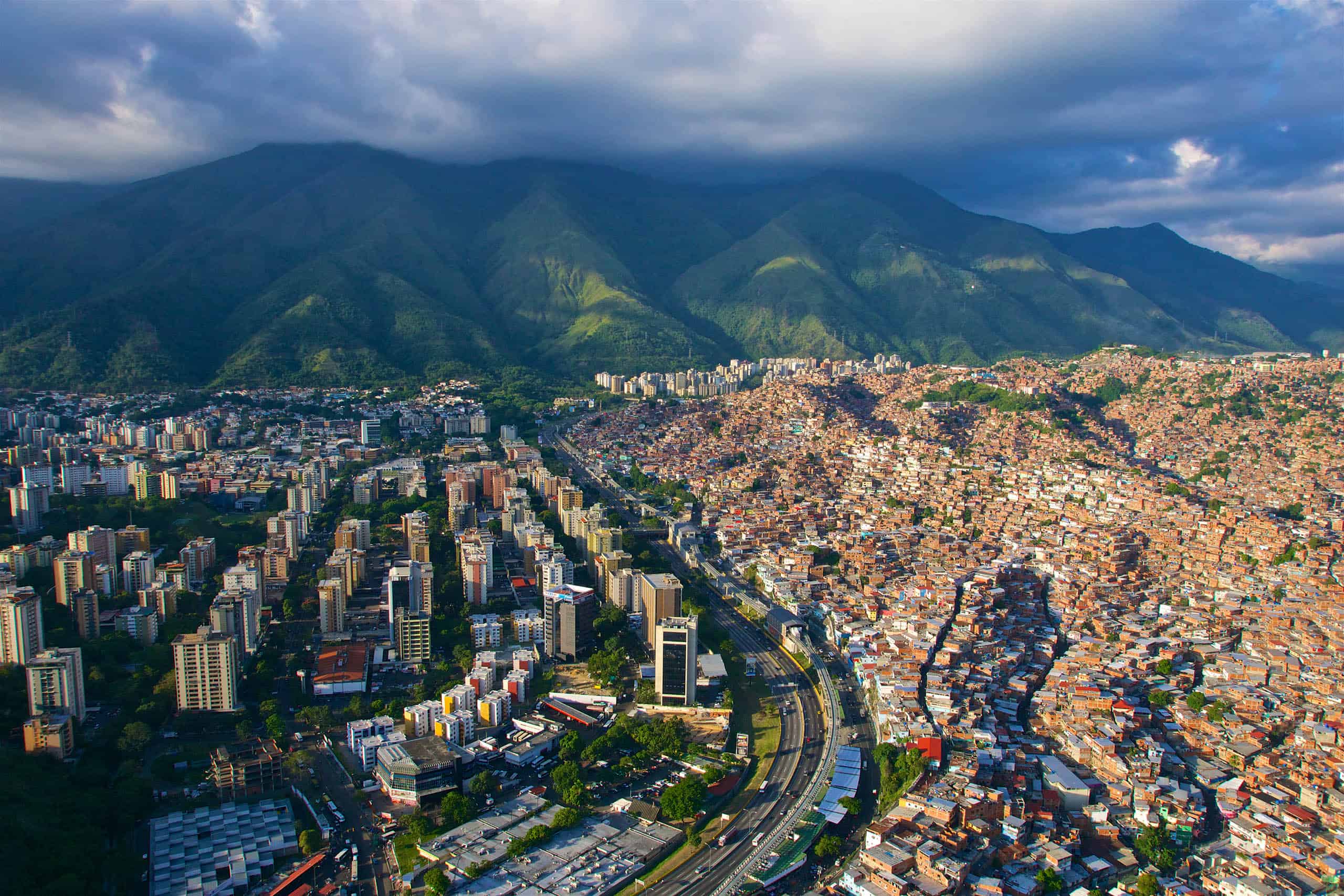Venezuela, known for its vast oil reserves, stunning natural landscapes, and rich cultural heritage, has experienced significant political and economic turmoil in recent years. Despite the challenges, some foreign investors may still be curious whether buying property in Venezuela is possible. With its natural beauty, such as the Angel Falls, the world’s highest uninterrupted waterfall, and attractive coastal regions, Venezuela has historically been a destination for real estate investment. However, navigating the real estate market as a foreigner in Venezuela requires understanding the local laws and regulations.
This detailed guide will explore whether foreigners can purchase property in Venezuela, the legal framework governing foreign property ownership, the advantages and challenges of investing in Venezuelan real estate, and the practical steps involved in acquiring property there.
Can Foreigners Buy Property in Venezuela?
Yes, foreigners can buy property in Venezuela, but specific rules and regulations must be followed. Unlike some countries where foreigners face restrictions on property ownership, Venezuela does not have significant barriers to foreign buyers purchasing real estate. However, due to the country’s unique economic situation and evolving legal environment, foreigners must be well-informed and prepared before purchasing property.
Key Legal Considerations for Foreign Property Ownership in Venezuela
- No Restrictions on Foreign Ownership: No major restrictions prevent foreigners from owning property in Venezuela. Foreign individuals, companies, and investors can legally acquire residential, commercial, and agricultural properties. As long as the buyer follows the country’s legal procedures, property ownership is accessible to non-Venezuelans.
- Land Ownership vs. Property Ownership: While foreigners can purchase properties, land ownership laws can be more complicated. In Venezuela, property ownership typically involves the land and any improvements, such as buildings or structures. However, the state retains control over land, particularly in rural areas. Buyers should carefully review land use rights and any restrictions imposed by the government before making a purchase.
- Real Estate Registration: To ensure that the transaction is legally binding, all real estate purchases must be registered with the local land registry. This involves submitting various legal documents to the relevant government authorities, such as the buyer’s identification, proof of payment, and property title deeds. The registration process can be time-consuming and may require legal assistance to navigate.
- Venezuelan Residency Requirements: While foreigners can buy property in Venezuela, it’s important to understand that certain residency requirements may apply, particularly for property purchases that involve larger investments or those in special economic zones. In some cases, obtaining a residence permit or establishing a business presence in the country may be necessary to meet local regulations.
- Ownership of Property by Foreign Companies: Foreign companies are also permitted to own property in Venezuela. A foreign company must follow the same registration process as an individual buyer and meet specific local business requirements, such as obtaining a commercial registration or tax identification number.
- Currency and Payment Issues: Given Venezuela’s ongoing economic challenges, including hyperinflation and the volatility of the local currency, making payments for property in Venezuela can be tricky. Foreigners are typically advised to conduct transactions in foreign currencies, such as the U.S. dollar or Euros, to mitigate exchange rates and inflation risks. In recent years, the government has allowed businesses to operate in U.S. dollars, which can be helpful for foreign buyers in terms of pricing stability.
- Property Taxes and Fees: Property taxes in Venezuela are relatively low compared to many other countries. However, the property tax system is subject to change, especially given the country’s economic situation. Buyers should consult with local legal experts to understand the latest tax obligations related to property ownership. Additionally, closing costs, registration fees, and notary fees can apply when purchasing real estate.
The Process of Buying Property in Venezuela

Foreigners interested in purchasing property in Venezuela should familiarize themselves with the process and take the following steps to ensure a smooth transaction:
Conduct Market Research
Before making any property investment, foreigners should thoroughly research the Venezuelan real estate market. It’s crucial to understand the areas most suitable for investment, whether urban or rural, and assess the potential for property value appreciation. Cities such as Caracas, Valencia, and Maracaibo are major hubs where foreign buyers typically seek property. At the same time, coastal areas like Margarita Island and La Guaira are popular among those seeking vacation homes.
Understanding the market dynamics and having a clear investment strategy will help investors avoid potential pitfalls and make informed decisions.
Hire a Local Real Estate Agent or Lawyer
Given the complexities of Venezuela’s legal system and real estate market, it is highly recommended that you work with a local real estate agent and/or lawyer. A qualified lawyer will help you navigate the legal requirements for purchasing property and ensure that the title deed is valid and free of encumbrances. A trusted real estate agent will assist with property selection, negotiations, and liaising with sellers.
Make sure to choose an agent who has experience working with foreign buyers and is familiar with the legal intricacies of property transactions in Venezuela.
Verify the Property’s Legal Status
Before proceeding with a purchase, it is critical to verify the legal status of the property. This includes confirming that the property has a clear title and is not subject to legal disputes. A local lawyer can check if the property has outstanding debts, unresolved issues with land use, or any claims against it.
Additionally, ensure that the property is free from zoning issues, which can be especially important for buyers looking to develop or use the property for commercial purposes.
Negotiate the Price and Sign the Contract
Once you’ve identified a property and conducted due diligence, the next step is to negotiate the terms of the sale. It is advisable to have a clear understanding of the property’s market value before entering negotiations. After agreeing on the price, both parties should sign a formal sales contract, which a lawyer should draft to ensure that all terms are legally binding.
Register the Property
After the contract is signed, the property must be registered with the local land registry. This registration process ensures the transaction is legally recognized and the buyer’s ownership rights are secured. To complete the registration process, the buyer must submit the signed contract, proof of payment, and other required documentation.
Once the registration is complete, the buyer will receive the property title, confirming their ownership.
Pay Closing Costs and Taxes
In addition to the purchase price, other costs are associated with buying property in Venezuela, including notary fees, registration fees, and taxes. Make sure to budget for these additional expenses and be prepared to pay them during the closing process.
Challenges and Risks for Foreign Investors
While the opportunity to buy property in Venezuela may seem appealing, there are certain challenges and risks that foreign investors must consider:
Political and Economic Instability
Venezuela has been plagued by political and economic instability in recent years. Hyperinflation, currency devaluation, and fluctuations in the oil market have negatively impacted the country’s economy. These factors can lead to unpredictable property prices and rapidly changing investment values.
Foreign investors should be prepared for potential challenges related to currency fluctuations and understand that the political environment can affect their ability to transfer money or repatriate profits.
Security Concerns
Certain areas of Venezuela have high crime rates, particularly in urban centers like Caracas. Foreign buyers must consider security concerns when choosing a location for property investment. Working with a local expert who understands the safety risks in various regions of Venezuela is crucial to making an informed decision.
Lack of Transparency
The Venezuelan property market has faced issues with transparency, and some property transactions may involve paperwork or title disputes. It is crucial to work with trusted professionals to ensure that all legal requirements are followed and that the purchase process is clear and transparent.
Difficulties in Currency Transactions
As mentioned, Venezuela has faced severe inflation, leading to a devaluation of the Venezuelan bolívar. In response to this, many real estate transactions are conducted in foreign currencies like U.S. dollars. Buyers may encounter challenges in transferring money or navigating the local financial system, especially if there are restrictions on foreign exchange.
Conclusion
Venezuela offers foreign investors an opportunity to purchase property in a country with a rich cultural history and vast natural beauty. While the legal framework allows for foreign property ownership, significant challenges and risks must be considered, including political instability, economic volatility, and potential security issues.
Foreigners can buy property in Venezuela if they follow the legal procedures, conduct thorough research, and seek professional assistance. Understanding the local property market and remaining aware of the risks involved will help foreign buyers make informed decisions and potentially take advantage of the opportunities in the Venezuelan real estate sector.










